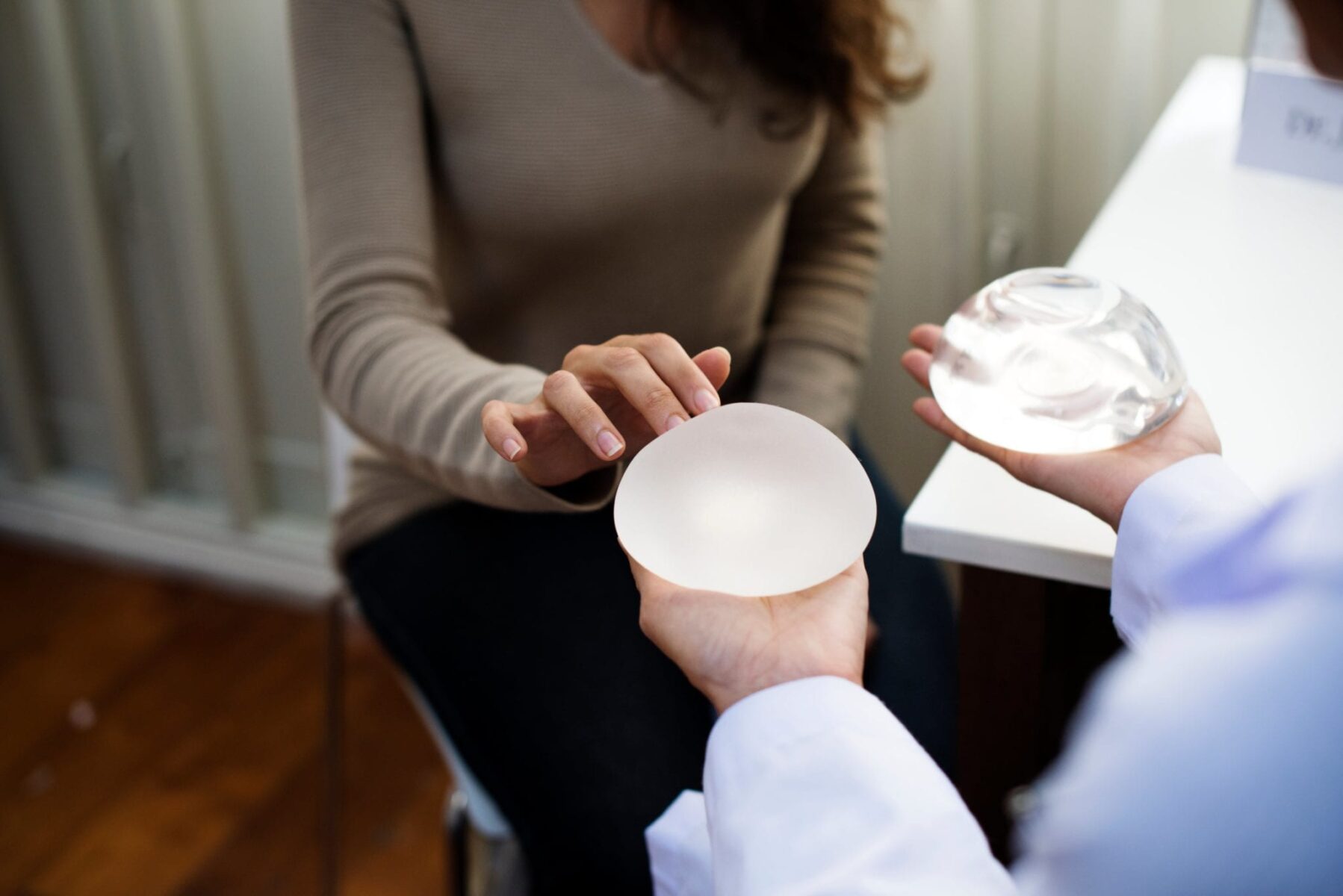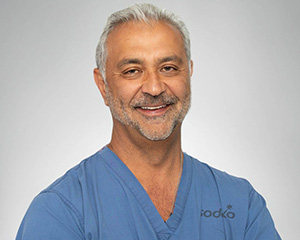Why Do I Need Breast Implants?
Having a breast augmentation is a personal decision that women consider for multiple reasons. Some who have reconstructive surgery aren’t satisfied with the current shape, contour, and/or size of their breasts. Others want breast implants after having a mastectomy.
Whatever you’re unsatisfied with, breast implant procedures can create fuller, firmer, and shapelier breasts. Dr. Mazaheri is a board-certified plastic surgeon who can help you make the right decision to achieve your esthetic goals.
What to Expect From a Consultation
In your initial consultation, you’ll discuss requirements for surgery and determine what’s necessary and/or realistic for your preferred goals. Suitable candidates for breast implants are women who feel they have uneven, disproportionate, or small breasts. Those who have experienced childbirth, weight loss, and a loss of firmness or breast tissue due to genetics also tend to favor breast implants.
Please note: Women who have sagging breasts may not be good candidates for this surgery. For this, a breast lift or breast lift with augmentation is likely the better option.
Questions to Ask Before Surgery
Women should only put their trust in a reputable surgeon that’s board-certified by the American Board of Plastic Surgery. An experienced plastic surgeon also ensures you’ll receive the best possible care. When you go in for any treatment-planning appointments, consider asking these important questions:
- What implant placement and incision location will be best for me? How much scarring can be expected?
- Can I see your most recent before-and-after photos?
- If I don’t like the results of my surgery, what can I do?
- Will I lose any sensation in my nipples or breasts?
- Is it possible to prevent breast implants from rupturing, rippling, or wrinkling?
- What is the warranty for breast implants, and what fees do I have to pay if they rupture?
- Will my regular pills—birth control pills, antidepressants, diet pills—affect the anesthesia?
- How soon can I get back to my regular exercise routine?
Possible Risks of Breast Implant Procedure
Although rare—the following is a list of complications and adverse outcomes that may occur in at least one percent of breast augmentation patients.
- Anesthesia allergy
- Early implant failure
- Fat-grafting failure
- Surgical complications, such as bleeding, clotting, fever, swelling, etc.
- Excessive pain felt beyond pain medication
- Scar tissue formation
- Unsatisfactory outcome
- Alteration in nipple sensation
- Other complications
These could require additional treatments or procedures to protect your health. Other reasons you may need additional work include leaky, shifted, and oversized implants. Most poorly performed surgeries can be corrected by a trusted, experienced plastic surgeon. Dr. Mazaheri is extremely adept in and committed to carrying out high-quality surgery redos to help you feel like yourself again.
Silicone vs. Saline Implants
Despite claims of there being a 10-year lifetime: there’s no expiration date on breast implants. However, the Food & Drug Administration does recommend medical imaging to check the integrity of silicone-filled implants following three years and then every two years after that. If a silicone gel-filled breast implant ruptures, you or your doctor might not immediately notice. Most silicone implant ruptures happen without symptoms—an MRI will show if there is a rupture or leak. If your saline implant leaks your breast size will decrease, so you’ll probably opt to replace it. Regardless of the type of implant you want—extensive research shows silicone implants are just as safe as saline ones.
Implants: Is Bigger, Better? And Can I Breastfeed?
Your implants can’t always be as big as you want. The size of your rib cage, as well as the thickness and elasticity of your skin, determines your ability to accommodate larger implants without stretch marks.
Additionally, while some women who undergo breast augmentation can successfully breastfeed and some cannot, but there’s no evidence to suggest breastfeeding is unsafe for you or your baby. Keep in mind that women who have a mastectomy followed by breast reconstruction are unable to breastfeed because milk ducts in the breast tissue must be removed.
What Are Drains and Why Are They Used?
Drains are soft, small silicone tubes that remove blood and fluid from around a breast implant while you heal. Drains aren’t painful, and using them decreases your risk of complications (infection, capsular contracture, seroma, etc.). They’re never a necessity in first-time breast augmentations.
Still Confused About Breast Implants? Schedule a Consultation With Dr. Mazaheri
It’s of the most common cosmetic surgeries offered today, but most women still need clarity before getting a breast augmentation. If you have questions about breast implants, trust Dr. Mazaheri to honestly answer them all and ease your uncertainty. With more than 16 years of education and advanced training, Dr. Mazaheri is the ideal choice to help you realize your desired look. Find out why patients trust Dr. Mazaheri for their breast enhancement and cosmetic procedures. Contact us to connect with Dr. Mazaheri and learn more about what he can do to clear up any confusion you may have about breast implants.
Comments are closed.


